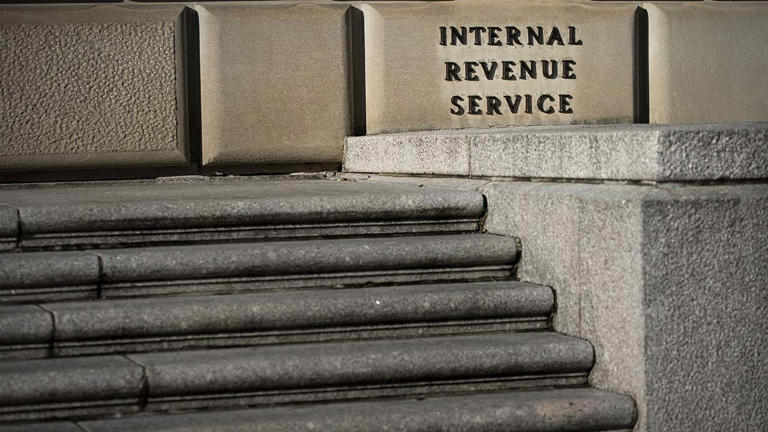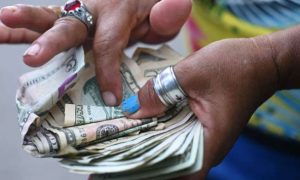The newest health care and climate spending bill from Democrats includes an $80 billion boost to the Internal Revenue Service that is intended to help the agency crack down on wealthy tax cheats. However, Republican critics say that a bigger IRS could ultimately hurt lower-income Americans.
Providing the IRS with an influx of funding has been a top priority for President Biden. It has emerged as one of the most prominent financiers of the Inflation Reduction Act that Senate Majority Leader Chuck Schumer, D-N.Y., and Sen. Joe Manchin, D-W.Va., unveiled last week.
The Democrats projected that enhancing IRS funding could add an extra $124 billion in federal revenue over the next decade by hiring more tax enforcers who can limit tax evasion by rich individuals and corporations. Roughly $1 trillion in federal taxes goes unpaid yearly because of errors, fraud and a lack of resources to adequately enforce collections, according to an estimate from IRS Commissioner Chuck Rettig last year.
But GOP lawmakers have sounded the alarm over the proposal, warning that it could have serious ramifications for lower-income workers.

That’s because the IRS disproportionately targets low-income Americans when it conducts tax audits each year. In fact, households with less than $25,000 in earnings are five times as likely to be audited by the agency than everyone else, according to a recent analysis of tax data from fiscal year 2021 by the Transactional Records Access Clearinghouse (TRAC) at Syracuse University.
The reason for that is a rise in what is known as “correspondence audits,” meaning the IRS conducts reviews of tax returns via letters or phone calls rather than more complex face-to-face audits. Just a fraction — 100,000 of the 659,000 audits in 2021 – were conducted in person.
According to the Syracuse study, more than half of the correspondence audits initiated by the IRS last year — 54% — involved low-income workers with gross receipts of less than $25,000 who claimed the earned income tax credit, an anti-poverty measure.
Even taxpayers with a total positive income that ranged from $200,000 to $1 million had one-third the odds of being audited by the IRS compared to the lowest-income wage earners. About 9 million taxpayers reported these high-income levels in 2021, but fewer than 40,000 of their returns were audited, or roughly 4.5 out of every 1,000. That contrasts sharply with lower-income Americans, who faced an audit rate of 13 out of every 1,000.

The discrepancy is primarily due to high-income taxpayers having complex investments that can easily shroud the gaps between taxes owed and paid vs. taxes reported and paid.
“Barring an unlikely significant change in the composition of IRS enforcement, the stepped-up IRS enforcement would subject taxpayers across the income spectrum to more scrutiny and greater audit risk,” the right-wing Heritage Foundation said in a recent blog post.
The Heritage Foundation noted that most IRS individual audit examinations target taxpayers reporting less than $50,000 of adjusted gross income. Although that group earns considerably less income than others, it faced recommended tax adjustments from the IRS of about $3.4 billion in fiscal year 2010. That compares to about $3.7 billion for those Americans reporting more than $50,000.

The IRS has maintained that it will not increase audits on households earning less than $400,000 if the $80 billion in funding is approved.
“These resources are absolutely not about increasing audit scrutiny on small businesses or middle-income Americans,” Retting, the IRS commissioner, wrote in a letter to lawmakers on Thursday. “As we have been planning, our investment of these enforcement resources is designed around Treasury’s directive that audit rates will not rise relative to recent years for households making under $400,000.”













































